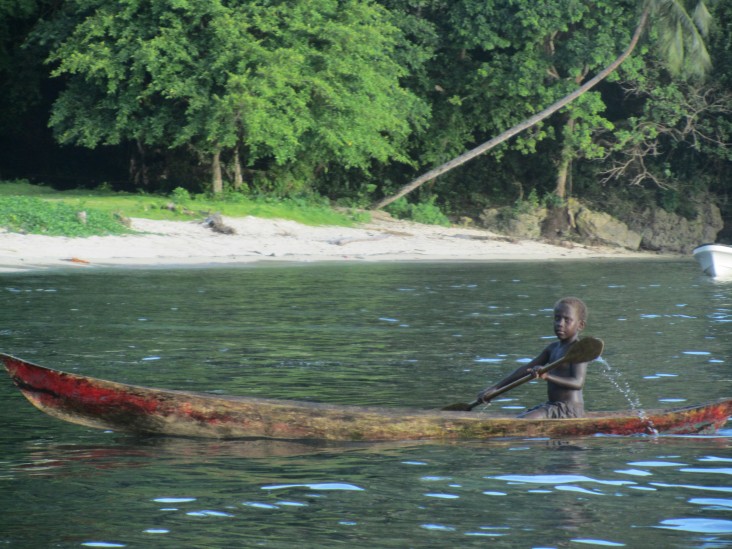
Choiseul Province, known locally as Lauru, is located in the Northwestern part of the Solomon Islands. According to the 2009 census, 26,372 people live in the province. The population is comprised of nearly equal proportions of males and female, living in over 550 villages in 14 wards (districts), distributed along the main island’s coastline.
The Government of the Solomon Islands selected Choiseul Province as the first province to implement a coordinated, cross-sectoral and integrated approach to climate change adaptation. The following development partners, together with the provincial and national governments, are collaboratively implementing the Choiseul Integrated Climate Change Programme (CHICCHAP), several of them with USAID funding:
- Deutsche Gesellschaft für Internationale Zusammenarbeit (German Agency for International Cooperation - GIZ) – funded through USAID
- Secretariat of the Pacific Regional Environment Programme (SPREP) – funded through USAID
- Secretariat of the Pacific Community (SPC) – funded through USAID
- United Nations Development Programme (UNDP); Pacific Australia Climate Change Science and Adaptation Programme (PACCSAP)
- The Nature Conservancy (TNC)
The experiences gained in this innovative approach to coordinate climate change implementation amongst agencies and development partners will be used to replicate the concept to other Solomon Islands provinces and Pacific Island countries.
This factsheet focuses only on the USAID-GIZ component of CHICCHAP.
ACTIVITIES
To reduce the vulnerability of food security to the impacts of climate change, USAID and GIZ work with local communities to help establish nurseries that will supply tree species needed to implement forestry and agroforestry activities. Tree species used for inter-cropping help diversify crops and provide benefits such as coastal and riparian stabilization and nutrient replacement. In addition to agroforestry training, community farmers also receive technical assistance on contour farming and other sustainable agricultural practices that reduce soil erosion and make crops less vulnerable during high rainfall events. Selected communities will be assisted to establish near-shore Fish Aggregating Devices to enhance coastal fisheries. Field schools are established near the provincial capital in Taro that showcase the effectiveness of integrated farming systems for wetland and dryland crops, animal waste management and biogas digester systems.
IMPLEMENTATION APPROACH
The SPC/GIZ regional program “Coping with Climate Change in the Pacific Island Region” will lead the implementation of this program. Eight communities have been selected based on community vulnerability assessments conducted for Choiseul Province. More detailed vulnerability assessments have been undertaken at the community level for the selected communities. These assessments were carried out with the local communities utilizing participatory tools. Taking traditional knowledge into consideration, they provide the baseline for the project and guide the selection of appropriate integrated interventions and collaborative and synergetic approaches for implementation. Based on these assessments, prioritized climate change adaptation interventions are focusing on the agriculture, agro-forestry, coastal protection and fisheries.







Comment
Make a general inquiry or suggest an improvement.